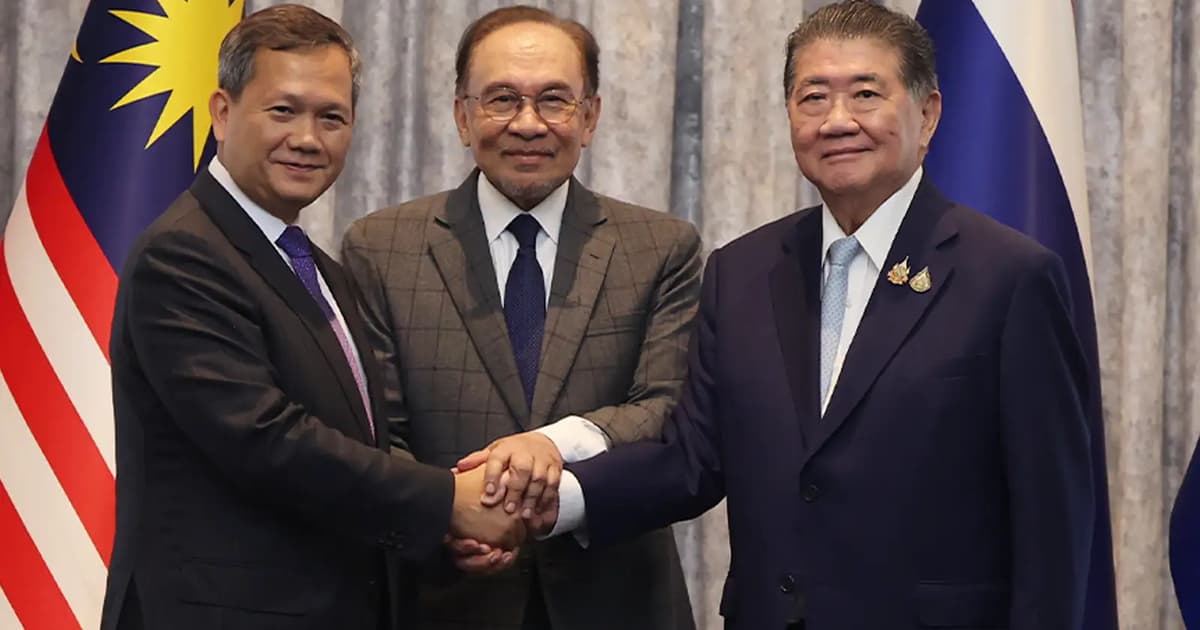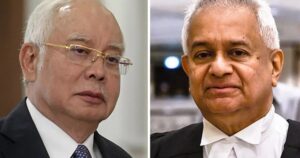
From Shakila Yacob
The July 2025 ceasefire between Thailand and Cambodia, brokered in Kuala Lumpur by Prime Minister Anwar Ibrahim under Asean’s auspices, was widely seen as a diplomatic breakthrough.
Yet the Preah Vihear Temple dispute was not a product of contemporary US-China rivalry, as some reports suggested.
Its origins lie in early 20th-century French colonial cartography, which placed the temple in Cambodian territory, contradicting earlier agreements with Siam (now Thailand).
The longstanding territorial and religious dispute, which periodically reignites, highlights the deep historical roots of regional conflicts. Sustaining the ceasefire requires ongoing, vigilant monitoring and diplomacy.
Colonial legacies have flared at key moments: in 1962, when the International Court of Justice awarded sovereignty of the temple to Cambodia; in 2008, when the Unesco heritage listing triggered military skirmishes; and in 2011, when severe clashes between army forces claimed dozens of lives and displaced tens of thousands.
For decades, Asean has grappled with such intra-regional disputes quietly, often without international fanfare through patient, consensus-driven diplomacy. The current ceasefire, brokered by Anwar with nudges from US president Donald Trump, fits into this tradition.
Against this background, Malaysia’s broader peacebuilding record should be understood.
At a time of multiple global crises, it is worth asking whether a Global South leader, such as Anwar, should be considered for the Nobel Peace Prize.
For decades, the Nobel Peace Prize has been awarded to persons and organisations that have made outstanding contributions to peace. While the achievements of these laureates are undeniable, the list remains dominated by figures from the Global North. Leaders and nations from the Global South, despite their substantial roles in conflict resolution, rarely receive the same recognition.
Should the Nobel Committee go one step further and create a category that honours nations for their collective peacebuilding efforts? This would call for a decolonial recalibration of global recognition in international diplomacy.
Nobel Peace Prize recognition for nations
The Nobel Peace Prize rarely acknowledges the collective, policy-driven nature of peacebuilding.
In Malaysia, diplomacy reflects a coordinated national effort across institutions, civil society, and local communities, guided by decades of policy. Peace is policy, institution, and continuity.
This tradition of peacebuilding in Malaysia is deeply rooted in over five decades of steady diplomatic engagement, both within Southeast Asia and beyond. It reflects a broader commitment to conflict resolution that transcends individual leadership, relying instead on the coordinated efforts of successive governments, foreign ministries, professional diplomats, religious and community leaders, civil society actors, and local populations engaged in dialogue and confidence-building over extended periods.
Recognition of nations by the Nobel committee would acknowledge that peace is not just an outcome of charisma or courage, but of systemic, inter-generational statecraft.
In many countries, Malaysia among them, diplomacy is not the product of a single personality, but of sustained institutional commitment, rooted in formal foreign policy principles and national development strategies.
Malaysia’s engagement in the Vietnamese refugee crisis, its facilitation of the Mindanao peace process, backchannel diplomacy in Southern Thailand, and Asean-led mediation in the Thailand-Laos border dispute all reflect long-standing policy orientations: the Asean doctrine of a zone of peace, freedom and neutrality, quiet diplomacy, and an emphasis on non-interference coupled with conflict resolution.
These policies are implemented over decades, surviving political transitions because they are firmly institutionalised within the foreign ministry, the Prime Minister’s Department, and Asean frameworks.
Such achievements encompass the work of successive governments, career diplomats, religious and community leaders, civil society actors, and local populations engaged in dialogue and confidence-building. They are underpinned by strategic policies that prioritise regional stability, humanitarian engagement, and peaceful dispute settlement.
Peace, in this sense, emerges not from singular acts of leadership but from coordinated, multi-level engagement supported by enduring policy commitments. A more inclusive and representative framework for international recognition — one that honours the shared responsibility and cumulative contributions of national institutions, societal actors, and policy traditions — would better reflect the complex realities of 21st-century diplomacy and conflict prevention.
Creating a Nobel Peace Prize category for nations would not only fill this gap, but also incentivise governments to maintain long-term peacebuilding policies in an era where short-termism too often dominates international affairs.
As Malaysia leads Asean in 2025, recognition under such a Nobel category would underscore its pivotal role in regional peace and global diplomacy.
Shakila Yacob is a professor at Sunway University’s Jeffrey Cheah Institute on Southeast Asia.
The views expressed are those of the writer and do not necessarily reflect those of FMT.






